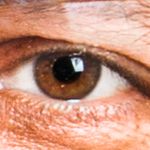- Home
- Stock Contributors
- Discussions
- Any idea of another stock photo platform that does...
- Any idea of another stock photo platform that does...
Copy link to clipboard
Copied
Adobe's critique of most "unaccepted" photos is unreasonable and I've found hundreds of much poorer quality images on Adobe Stock that I myself would never purchase due to unfixable color balance, not being HDR, poor composition, out of focus, etc.
My submissions, though obviously not perfect, are none of those. Seems Adobe stock is very inconsistent. As a customer, I'm tired of wasting my time not finding images that I need to purchase for projects, but also, that same platform not accepting images that I or someone else would use for similar projects.
Any ideas on what the problem is and where I could go next? I'd love to hear about other stock photo companies that users have had luck with. Thanks!
PS. photos supplied as examples are taken during wildfire season and was noted in keywords.
 5 Correct answers
5 Correct answers
I don't think Adobe's standards are unreasonable, though there can be some inconsistencies in the moderation process. Occasionally we see a rejected image posted here for feedback in which the community members can find no flaws; but by and large the rejected images do demonstrate technical flaws.
Here's what I detect in the examples you posted:
1. Not in focus
2. large blownout area and lens flare
3. White balance seems a bit too blue
4. Soft focus
5. Focus and chromatic aberration
There a
...Hi @D Strolis ,
Your first file is underexposed. You are shooting in the sun so you underexpose; that's not acceptable. Your photo must be as such it is close as possible to what it looks like in reality. With such a bright sun earth's objects would not be so dark. It means you'll need to employ techniques to filter the sun's light and to get light onto the shadow side of your subject without using filters. Besides, it is not recommended to shoot in the sun. Black areas do not do well for printi
...Good luck with othr companies. You will soon expierience, that photos will get accepted by one but, not the other and vice versa.
I looked at your first photo (175151) and here is what i see:
1. The shadows (trees aned bushes) are underexposed.
2. The highlighted sun reflection is overexposed.
3. Due to the exposure difference between the bright sky and water and the darker limbs and the mountain top you have a white halo and artifacts.
4. The horizon is not level. The right side of the bank is
...Hello,
To me, these photos look as if they have been taken with a smartphone. The overall quality and the naming system of the file indicate this.
The issue with smartphone cameras and cameras that have a small sensor is that the sensor is small, so it is difficult to get a high enough quality that one can enlarge. The photos that you have shown will not enlarge very well. This is important in a commercial sense as they could be used for billboards - for example.
Another thing is that the file
...I think there are multiples of people on the other end validating "quality" issues. I think it depends on who is actually reviewing your work.
Correct for those pictures that may or may not pass. But definitely not for pictures that obviously have defects on.
Give it some time, submit other work and then resubmit these. You'll most likely get a different reviewer and they could get through.
Risky as you could get seen after some time as a spammer. It is, however, allowed to correct iss
...Copy link to clipboard
Copied
I don't think Adobe's standards are unreasonable, though there can be some inconsistencies in the moderation process. Occasionally we see a rejected image posted here for feedback in which the community members can find no flaws; but by and large the rejected images do demonstrate technical flaws.
Here's what I detect in the examples you posted:
1. Not in focus
2. large blownout area and lens flare
3. White balance seems a bit too blue
4. Soft focus
5. Focus and chromatic aberration
There are indeed older images in the database, perhaps from Fotolia, that don't seem to meet the current quality standards, but digital cameras have improved dramatically over the years so I would expect the standards to be raised as well.
Copy link to clipboard
Copied
Another Pacific Northwestener I see! I like you photos. With some of them I think some minor edits could get them accepted. Soft focus and/or totally blown out highlights will doom them. We are just guessing here, but I'd adjust the white and black point to maximize the tonal range. I'd also adjust the transformation to get the trees more parallel rather than angled inward. I've seen other say Adobe frowns on solar flares. That could be an issue with the photo where the sun is dominant. Don't give up yet.
As far as other platforms are concerned I've had mixed result with them. They have rejected photos that were accepted by Adobe. It's been hit or miss for me. Best regards, John
Copy link to clipboard
Copied
Another Pacific Northwestener I see! I like you photos. With some of them I think some minor edits could get them accepted. Soft focus and/or totally blown out highlights will doom them. We are just guessing here, but I'd adjust the white and black point to maximize the tonal range. I'd also adjust the transformation to get the trees more parallel rather than angled inward. I've seen other say Adobe frowns on solar flares. That could be an issue with the photo where the sun is dominant. Don't give up yet.
As far as other platforms are concerned I've had mixed result with them. They have rejected photos that were accepted by Adobe. It's been hit or miss for me. Best regards, John
By @John PDX
There is no guessing here. The biggest problem with those pictures is the washed out colours, typical for small sensor cameras. You can't recover those, as you can't recover blow-outs, as you can't recover an out of focus.
However, as other platforms are concerned, I found that when my pictures got refused by Adobe, I mostly found the error and did no more submit with others. But when submitting in parallel, competitors accepted pictures that Adobe rightfully refused.
I think that Adobe is quite stringent with the quality requirements.
However, Adobe stock has an issue with legacy assets. Some of those are unacceptable, and Adobe gets complaints about them. Those assets get deleted.
Copy link to clipboard
Copied
Hi @D Strolis ,
Your first file is underexposed. You are shooting in the sun so you underexpose; that's not acceptable. Your photo must be as such it is close as possible to what it looks like in reality. With such a bright sun earth's objects would not be so dark. It means you'll need to employ techniques to filter the sun's light and to get light onto the shadow side of your subject without using filters. Besides, it is not recommended to shoot in the sun. Black areas do not do well for printing.
Lens flares are all over the second image. The plaque makes this an IP requirement.
The third file has white balance issue and out of focus. It looks like a nice painting. I believe you did not have enough depth for this shot.
The fourth one also has no details. The perspective need correcting and there's blue color fringing around the edge in the highlights.
The fifth also has lost details. Seem over-processed and has a blue white balance issue.
First off, if you found poorer quality than these on Adobe platform, you'd have pointed it out because it would mean you'd have paid for, and downloaded the actual photo and know how to check for issues. Judging from these photos you deem fairly good quality, you do not know how to check for issues and judging from your comment you have never bought a poor quality photo. You cannot check for quality from a thumbnail. So you found hundreds of images you do not like don't mean their quality are poor.
Inconsistency is expected since it's people that reviews the photos. However, I have never come across a file on the platform that I will consider of poor quality. So if you find any such file, we'd love to see it. I rather sticking to a platform that I can grow with than one that takes anything. That is the reason I stick with Adobe.
If you wish to stay with Adobe then you need to read-up on the Adobe Contributor Guidelines and Tip For Getting You Photos Accepted. These other tips will help you a great deal. Read the information of all the sub-links. The third link page title "Income Requirement and Payout" means if you want to get an income from your submitted files, you are required to to follow the guideline, which will help you get larger payouts.
Foap is a platform that takes anything you submit, so if you wish to try them you can download their app. Good luck selling.
Best wishes
Jacquelin
Copy link to clipboard
Copied
From my perspective, over the past few years the game really has changed with Stock Photography in general. Photography gear and software have gotten better and easier to use, and with that there isn't a shortage of high quality photos to be had. The bar is just getting progressively higher with what is acceptable. I feel sure there are a few photos in my own portfolio that wouldn't make it through these days. There are also some photos from before Adobe purchased Fotolia that may be grandfathered in.
Although it may be hard to see at the time, a rejection is a great opportunity to learn to better evaluate your photos for the next round of submissions 🙂
I actually find Adobe to be the least "cluttered" out of all the stock agencies and can usually find what I need for a project with just a search of a few minutes. It's not hard to locate the big names in Stock though, feel free to browse their catalogs.
With sincerity, I wish you good luck with future submissions!
George F, Fine Art Landscape Photographer
Copy link to clipboard
Copied
Good luck with othr companies. You will soon expierience, that photos will get accepted by one but, not the other and vice versa.
I looked at your first photo (175151) and here is what i see:
1. The shadows (trees aned bushes) are underexposed.
2. The highlighted sun reflection is overexposed.
3. Due to the exposure difference between the bright sky and water and the darker limbs and the mountain top you have a white halo and artifacts.
4. The horizon is not level. The right side of the bank is slightly higher than the left.
5. There is too much noise in the sky and water. Some color noise.
6. The photo is not in focus.
7. There are some spots in the water (a bird and the boat) which need to be removed.
This photo, I am sorry to say, needs to be better.
As you say, as a customer you would never buy the poor quality images that you have found. So, surely you realize why the standards are high and why your photo that I reviewed, cannot be accepted.
Copy link to clipboard
Copied
Hello,
To me, these photos look as if they have been taken with a smartphone. The overall quality and the naming system of the file indicate this.
The issue with smartphone cameras and cameras that have a small sensor is that the sensor is small, so it is difficult to get a high enough quality that one can enlarge. The photos that you have shown will not enlarge very well. This is important in a commercial sense as they could be used for billboards - for example.
Another thing is that the file is saved as JPEG, therefore, it is somewhat difficult to do further post-processing. It looks as though these came straight out of the camera. Post-processing is necessary when you want them for stock (and not only). For example, in a lot of your photos white balance needs to be altered a bit, lens flare removed, some cropping of the photo in some cases to improve composition, etc. That is why people recommended taking the photo in raw (DNG, CR2, CR3, etc) You can alter the raw file without destruction. (Saving a file as JPEG continuously destroys the file.)
Enlarging your photos shows some JPEG compression artifacts. Under the quality rejection issue, a subheading could be artifacts and noise.
Quality issues these days are becoming a lot more important, and people are becoming a lot more picky.
Hence Adobe also needs to be stricter in its quality control.
Copy link to clipboard
Copied
I would offer a counterpoint to Ricky regarding smaller sensors in smartphone cameras. Testing by photography websites will bear out that the cameras in the latest iPhones (e.g. 13 Pro and 14 Pro) are equal to, or better than many DSLRs when used in good lighting conditions. The advantage DSLRs offer are greater versatility due to interchangeable lenses and better low light performance. The greater surface area of larger sensors gather more light. Consequently you can shoot at lower ISOs producing photos with less noise. Additionally, smartphone cameras frequently use more 'in camera' processing. That may not always produce optimal result. However, in most cases that is configurable. Likewise, you can configure the iPhone Pro's to output photos on ProRAW format. That is a lossless format that avoids the pitfalls of compressed formats like JPG and HEIC.
So, IMO shoot away with your recent smartphone. In good lighting it should produce excellent photos suitable for Adobe Stock. If you want a more versatile setup with better low light performance use a DSLR (soon to be obsolete) or mirrorless rig.
Copy link to clipboard
Copied
Hi @John PDX
Both yourself and @Ricky336 have good points. There is no doubt that iPhone takes good quality photos and have been improving. I still agree that sensor size and depth of field does affect the outcome of the capture and will greatly affect the versatility of your portfolio. You have to know what subjects to capture to get Adobe stock-worthy photos. Customers do not use photos for small projects only and when a fill is zoomed its quality should stand out. Details are essential for stock photos.
The last time I checked only Samsung has adjustable f-stops and it's not very much. So even though iPhone might have the record of best photos among smart phones, it has too much limitations for use for stock photography if you're looking to maximize the potential of your portfolio. None of the attached photos are good stock photo subjects for phone cameras. Not even the latest iPhone.
Best wishes
Jacquelin
Copy link to clipboard
Copied
I would offer a counterpoint to Ricky regarding smaller sensors in smartphone cameras. Testing by photography websites will bear out that the cameras in the latest iPhones (e.g. 13 Pro and 14 Pro) are equal to, or better than many DSLRs when used in good lighting conditions.
By @John PDX
I doubt that! When I take a $1000 camera and a $1000 cell phone, the quality of the cell phone photography is not as good with the same light conditions. But I know of people doing cell phone photography, they upload here and generate sales.
DSLR will be no more sold, but they will stay relevant for another five to ten years. And the sensor technology of the mirrorless cameras is an evolution of that of the DSLR, the same as was from one generation of DSLR to a different one. It's the sensor and the lens determining the quality of the picture, if the same talented photographer takes the picture.
Copy link to clipboard
Copied
Regarding the DSLR vs. Mirrorless question, I intend to keep my "workhorse" Canon 5D Mark IV strapped on for a few more years. Each time I read a comparison between DSLR and mirrorless I find that in some ways the mirrorless technology hasn't quite caught up to the DSLR, built-in GPS tagging being one of the features very important to me when I'm traveling. Nevertheless, though I'm remaining faithful to my Mark IV for a few more years, I'm not investing in any more lenses.
https://www.digitalcameraworld.com/features/dslr-vs-mirrorless-cameras-how-do-they-compare
Copy link to clipboard
Copied
This is quite OT, but your camera is a $4000 machine. In the hands of a knowledgable photographer, it is a great workhorse for still some years, except for sports photography. But yes, lenses are the issue when changing the system. My 70-200 f2.8 is still in my posession, from the times of my 20D, the first decent digital camera of the time that you could buy. That lens gets now 18 years.
Since a few years now, I switched to prime lenses. But in prime, my biggest focal length is 85mm, my shortest is 14mm. So this zoom still plays a role.
Copy link to clipboard
Copied
So here's my theory as a new stock seller and having tested a few things. I think there are multiples of people on the other end validating "quality" issues. I think it depends on who is actually reviewing your work. Give it some time, submit other work and then resubmit these. You'll most likely get a different reviewer and they could get through.
One of my tests was submitting images that were published in a magazine. I submitted one if the images. It was approved. Then I submitted the rest of the set, none of them were approved and remember they were all published images so I knew and the publisher knew they were of good quality. Basically ya got a 50/50 shot on who is reviewing your images on the other end.
I'm also a buyer of stock. Keep in mind how a potential buyer may use your images: blogs, website, magazines, corporate newsletter, print and on and on.
My 2 Cents!
Copy link to clipboard
Copied
It's not a 50/50 gamble if you learn to detect flaws in your images and are careful to upload only the best. When I first started contributing, I was getting about 30-35% rejected. Now I get less than 5% rejected.
Copy link to clipboard
Copied
Hi @Dazzling_user15D5 ,
Your suggestion to @D Strolis to resubmit a rejected file without making corrections is a bad suggestion that earns noncompliance rejections that will lead to suspension or cancelled account. You can read more in Reason Content Is Rejected. In my opinion none of these files will be accepted no matter how many times they are submitted and how many different reviewers see them.
Best wishes
Jacquelin
Copy link to clipboard
Copied
I think there are multiples of people on the other end validating "quality" issues. I think it depends on who is actually reviewing your work.
Correct for those pictures that may or may not pass. But definitely not for pictures that obviously have defects on.
Give it some time, submit other work and then resubmit these. You'll most likely get a different reviewer and they could get through.
Risky as you could get seen after some time as a spammer. It is, however, allowed to correct issues and resubmit. If you are 100% sure that the moderator erred, you could retry without modifications.
One of my tests was submitting images that were published in a magazine. I submitted one if the images. It was approved. Then I submitted the rest of the set, none of them were approved and remember they were all published images so I knew and the publisher knew they were of good quality. Basically ya got a 50/50 shot on who is reviewing your images on the other end.
Published magazine pictures are not a measure for fit for stock. Stock images need to be fit for all circumstances. I know how to make some pictures fit for printing. All depends on the size of the picture. And I know that some defects are to be seen, but not everybody cares. I've made countless bad pictures fit for printing, but I've never done that for stock images.
I'm also a buyer of stock. Keep in mind how a potential buyer may use your images: blogs, website, magazines, corporate newsletter, print and on and on.
My 2 Cents!
Starting with magazines, you should have a higher quality. And on and on is the most difficult because quality requirements here are unknown.
Copy link to clipboard
Copied
Any idea of another stock photo platform that doesn't reject for "quality" issues?
=============
Good luck with that. Every microstock agency has quality standards & submission criteria you must meet to get your work accepted & sold. Some are less discerning than others but often they pay less royalty fees and have a smaller customer base that uses them.
Adobe Stock's standards bar is higher because their customers expect professional quality images for use in commercial projects.
There's no law that says you must contribute to microstock agencies. Many artists don't. If you want to sell images direct without going through a review process, set-up an Etsy Shop where you handle everything:
- marketing & advertising,
- customer acquisition costs,
- sales,
- payment processing,
- order fulfillment,
- product distribution,
- customer complaints +++.
All really fun stuff, especially for young start-ups who have never done it before and have no idea how much time, work & money it takes to make an e-commerce site into a successful revenue generating business.
I wish you the best of luck.










